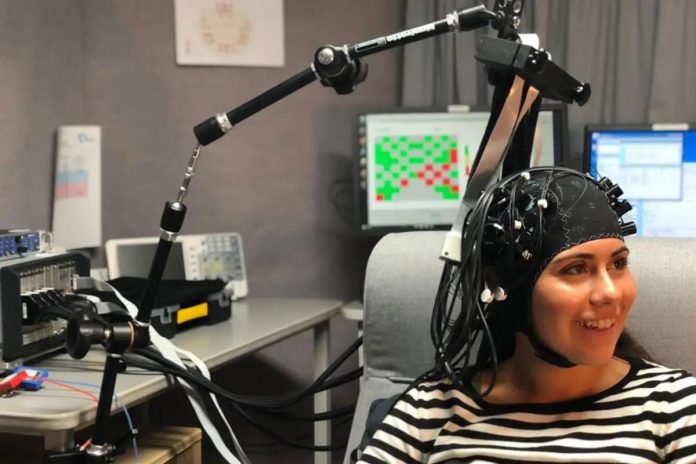Tinnitus is the sound of ringing, roaring, buzzing, hissing, or clicking that occurs inside the head. According to the American Tinnitus Association, currently, more than 50 million people in the U.S. suffer from some degree of tinnitus. Of these individuals, at least 2 million experience it so severely that it interferes with their daily activities. Researchers at the University of Iowa and Newcastle University in the United Kingdom have mapped the brain network responsible for the disorder. The findings may lead to more effective treatment.
The researchers had the rare opportunity to record directly from the brain of an individual suffering from tinnitus; thus, they were able to determine the brain networks responsible for the condition, in which a perception of sound occurs in the absence of an external source. The study participant was a 50-year-old man who had bilateral tinnitus affecting both ears, he heard a single, high-frequency tone, rather than a rushing, white noise, and he had hearing loss. To study the tinnitus-linked brain activity, the investigators attempted to temporarily suppress the chronic sound by playing a loud noise for 30 seconds. After turning off the external noise, tinnitus can get quieter or go away for a brief period of time. The investigators then examined brain scans when the subject’s tinnitus went away and compared them to scans when he experienced no change.
The authors noted that this subject was quite valuable because the same noise appeared to randomly make his tinnitus get quieter half the time, and did not for the other half; thus, making him his own control subject. By directly recording brain activity, the investigators were able to determine that tinnitus affects a large expanse of the brain, not just the areas involved in sound perception; involved areas included regions related to emotions, memory and mood. The researchers are hopeful that the determination of the brain network involved in tinnitus will serve as a foundation for further research on effective treatments. At present, of the most effective treatments for individuals with tinnitus-induced distress is cognitive behavioral therapy; this treatment helps affected individuals cope with how to think about and how to ignore their tinnitus, not with changing or getting rid of the sound. Various medications have also been used for treatment; however, at present, there is no cure for tinnitus.
Past research focused only on the auditory area of the brain. The new study will significantly expand the research by the new knowledge that other brain areas are involved. The authors note that the ineffectiveness of present treatments is due to the limited research focus.
The subject was a patient of the University of Iowa’s Iowa Comprehensive Epilepsy Program, which offers surgical treatment for its most serious patients. That surgery involves removing the portion of the brain that causes epileptic seizures. To remove the minimal amount of brain tissue, electrodes are implanted in and on the surface of the brain to record where the seizures are generated. The patients must wait at the hospital until their next seizure. During this time, university researchers have the opportunity to request that the patient voluntarily contribute to other research, in this case, the tinnitus study.















